Preamble
Ninety-five years ago, on 2nd September 1926, our saintly grandfather, Bhai Hira Singh Ji passed away at an early age of 46. Ever since then, we observe this date as a remembrance day. Until the partition of Punjab, our family used to organize a ‘prayer meet’ in our ancestral house in Farooka, District Sargodha. But after we migrated to India, we used to call friends over for ‘kirtan’ and ‘ardas’. After the demise of our respected father, Maj Balwant Singh Ji in 2004, we brothers have been getting together and writing a piece and post it on the website. With the passing away of our youngest brother, Brig Surinder, the onus of offering a tribute to our ancestors has fallen on me. May the Lord grant me the strength to do justice to this family obligation.
A Brief Introduction to Farooka (Punjab)
Farooka is about 35 kilometres to the West of Sargodha, as the crow flies. Until the end of the nineteenth century, it was a thinly populated backward village in a desert area. However, since it is situated between two rivers, Jhelum and Chenab, the sub-soil water was not very deep, and therefore, wells could provide enough drinking water. The land was very cheap since the crops were entirely dependent on the unpredictable and scanty winter rain. In 1873, a British engineer proposed a system of canals that were dug during the next five decades. For those who may like to get a general perspective its location and climate, some maps are given below.
Here, you see Farooka, between the Rivers Jhelum and Chenab
This is the map of Pakistan. Farooka is about 35 km to the west of Sargodha
This is the climate classification of Pakistan. Farooka falls in the red, ‘warm desert climate’
This shows ‘Humidity Comfort Levels’. In summer, Farooka was either ‘oppressive’ or ‘miserable’
*
OUR LAST VISIT to FAROOKA in June 1947
A bit of Family History
Our father joined the Army in Dec 1942, and for the next four years, he served in East Bengal and Burma. His last posting was to Maymyo, and from there, he was given a ‘home posting’ to Jhelum, since that was the nearest military station, from his hometown. Since he had a lot of ‘field service seniority’ he was allotted a house immediately after he joined, and we shifted to a huge bungalow, on the bank of the river in January 1947. On 7 Jun, our mother’s younger sister, Masi Agya passed away in a childbirth tragedy. We rushed to Farooka which was no more than a few hours of journey. Pitaji went back the very next day, but we brothers stayed back for a couple of weeks.
Given below is a picture of the four of us, as we looked then. I was six and Surinder was three.
The ‘foursome’ Surinder, self, Manmohan and Manjit in Nov 1946
Even though I was only six, my memory of that visit is very vivid. It is aided by the discussions which I have had with our eldest brothers, who often drew sketches to help me in recalling the events. Our house was known as ‘Makaan’. It was situated just next to the School founded by our grandfather, and I am tempted to share with you the sketch made by our brother, a few months before his demise in Dec 2019.
A sketch of our ‘Makaan’ It had many rooms and a long verandah. But it neither had a kitchen, nor any toilet. Water had to be drawn out of a well, located within the house
The furniture
As far as I can tell, there was no sofa-set since there was no ‘drawing room’ in the house. I do not recollect any chair, either. The cots were made of bamboo and jute and we had lots of little stools to sit on. At a rough count, there were about fifteen rooms. Here is what the furniture looked like:
The ‘charpoys’ needed regular tightening. But they were light and could be easily taken to the terrace, where we slept all through the summer.
This was a typical ‘seat’ offered to the guests
And this was a fancy ‘chauki’ to sit down on. It had no backrest.
A Snapshot of our Lives
As I have mentioned above, there was no electricity; no toilet and no running water. How then did we cope with the heat? As far as I can remember, even though we had come from Jhelum, where we had the ‘luxury of having electric lights and fans, I do not remember having missed the comforts of the town. Life was extremely simple. We were woken up long before the day broke. As soon as we got out of the beds, we were told to go to the fields near the house for ablutions. We carried a mug of water to wash our bottom. On the way, we broke a tender twig from a ‘keekar’ tree to brush our teeth. In return, we went to the well where an elder pulled out a bucket of water for us to bathe. That done, we were ready for the morning meal. The women got busy milking the buffaloes. The fuel for cooking was a combination of wood, coal and cow dung. Men who worked in the fields went very early. During the daytime, the only way to beat the heat was to sit under a shady tree.
If there was a light breeze, this was better than the best air-conditioner!
Indeed, if the breeze died down, people used handheld fans to air themselves Here is a picture of the kinds of fans used.
Hand-held fans, called ‘pankhis’
At the upper end of the social spectrum, there were aristocrats, who had installed manually operated ceiling fans that were pulled by a ‘punkha man’. Given below is a picture of this luxury, available to the elite of society.
The ultra-rich had installed ceiling fans which were pulled by a ‘pankha-man’ sitting outside.
Since there was no Television, mobile phone or computer, people talked to each other. Such conversation was known as ‘guftagu’ in Urdu. The affairs of the world beyond Sargodha were of no interest to a large majority of the people. Very few of them took the trouble of reading newspapers. Words like ‘pollution’ ‘traffic jams’ and ‘hacking’ had not yet been coined. And if we wanted to hear a song, one just asked someone to sing. Nearly everyone knew our folk songs which were full of life and zest.
If we wanted to know the meaning of a word or needed the answer to any question, we turned to our elders and accepted whatever we were told. In Farooka, we neither had a Police Station nor a Hospital. No one missed them!
The evening routine began long before the sunset. The ‘charpoys’ were carted to the roof, through a simple process of raising them from the ground floor with a man pulling them up. The evening meal was served soon after the sunset, and we all slept looking at the stars. As children, we were taught how to identify the pole-star, and the importance of the true North, as a direction. I am not sure how many of our younger generation have the ability to do that now. Here is what the night sky looks like, with the polar bear.
The seven stars configuration and the ‘North Star’ known as ‘Dhruv Tara’ in India
As I look back, we were there just two months before the partition. But even a detailed reading of the diaries of our father does not contain any reference to riots or even communal tension. Our family had lived in Farooka for at least seven generations. Our centenarian great grandfather, Bapu Bhag Singh Ji (1844-1947) had passed away just two months before, in April 1947. He lived a long and healthy life, without having to turn to the current form of complex health care. He had a graphic memory and could recount the names of his forefathers: Baba Jeevan Singh, Baba Chanan Sing and Baba Devi Das. All of them were born and died in Farooka. The Village headman was a Muslim known as Allah Yaar Kalyar. All three communities lived in perfect harmony. The mechanics of the partition and the transfer of population will remain a mystery for most of us.
*
Part Two- FAROOKA NOW
An unfulfilled Dream
Our father remained in touch with his Muslim friends in Farooka all through his life. We maintained that link, and I have been speaking to the grandson of Allah Yaar. His name is Fateh Mohammed Kalyar, and he has been keeping me informed about Farooka. It seems that the tiny little village has grown into a city, with a population of over 100,000. The school founded by our revered grandfather continues to be a landmark in the city. They now have several schools, two colleges, at least four markets and several hotels. The Kalyar family donated a large tract of land to build a Hospital.
I received a 24-minute long video recording of Farooka. It being rather long, I requested Ashwani to edit the recording and extract three clippings out of it. These are as follows:
A video of the School established by Bhai Hira Singh Ji in 1906. It was the only High School outside Sargodha at that time. A boarding house was created for fifty students. Poor children were provided free boarding and lodging and charged no tuition fee.
A clip of the Hospital built on the land donated by the Kalyar family. The greenery in the precincts is a treat for the eyes.
A view of the markets. You cannot fail to notice that most people in Farooka wear traditional clothes, and very few women venture out into the markets. It is also evident that animal transport is quite common though there is a significant number of cars.
The song chosen to embellish this video is the well-known poem written by Allama Iqbal, which says,
‘Lab pe aati hai dua banke tamanna meri…’ rendered as a chorus in a soulful voice.
The Tailpiece
It was so hot that one could not step out during the daytime. I remember that one day when I was asked by an elder to go and fetch some ‘rotis’ from the ‘tandoor’ at the far end of the courtyard, I ran on my toes to save the skin of my feet. There was no electricity, and yet no one complained. Today, if the power goes off even a few minutes, we start creating a ruckus.
We were no more than two months away from the earth-shattering partition. But no one talked about it. It was generally believed, that no matter what happened elsewhere, Farooka would remain peaceful. We were told that the village headman had assured our elders that no harm would come to us. He did ensure that even though we had to leave in a hurry, there was no physical violence.
*
Voh Kaagaz ki kishti, vo baarish ka paani…
We have come a long way since 1947. The world has moved miles ahead. We have travelled all over the world and half of our family has migrated to the land of the white man. Yet, we are in real-time touch with our friends and relatives on the other side of the globe. But I can not forget our last visit to Farooka. I have a vivid memory of the puddles that were often formed near the well after our bath. Surinder and I used to sail paper boats in those little pools of water. I want to go back there!

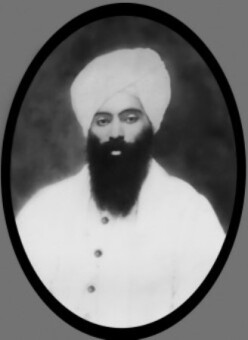
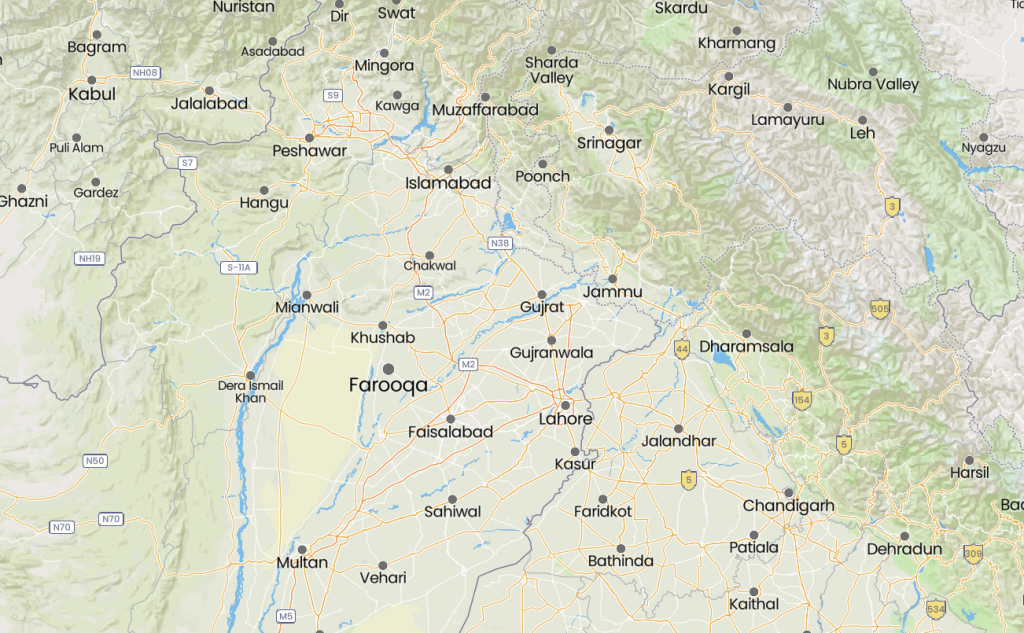
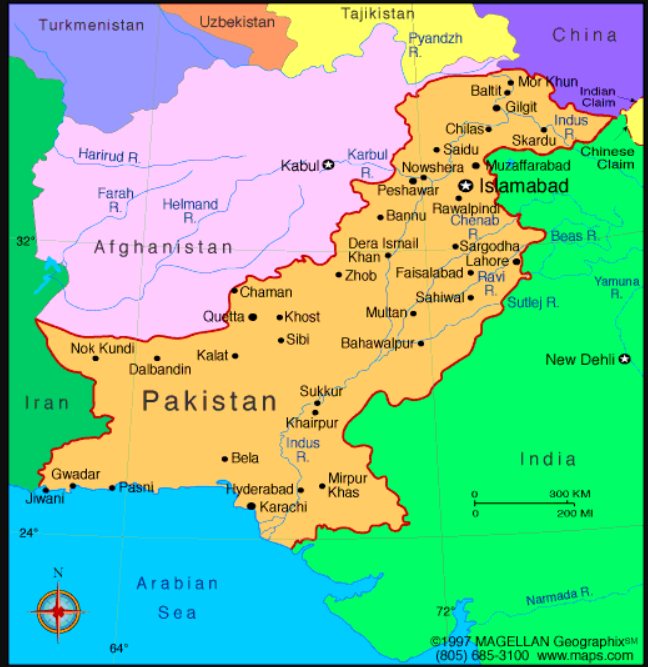
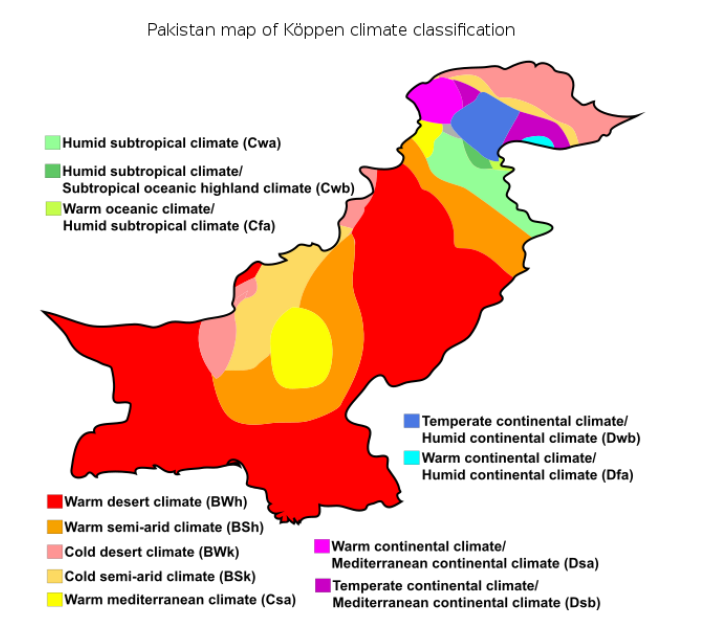
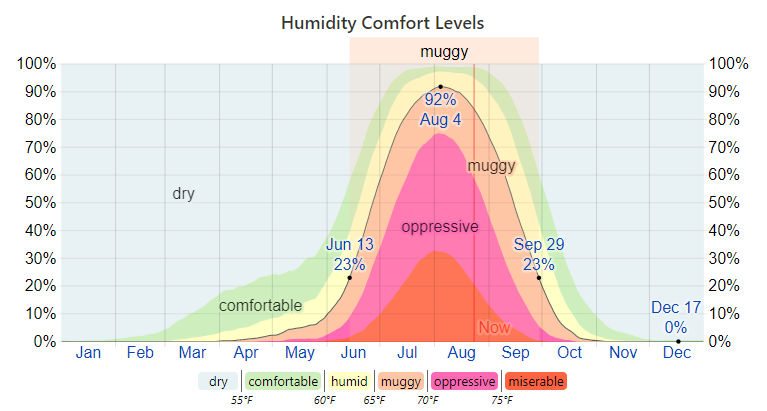
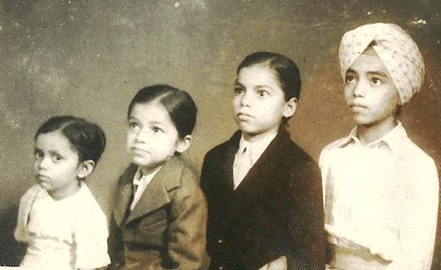
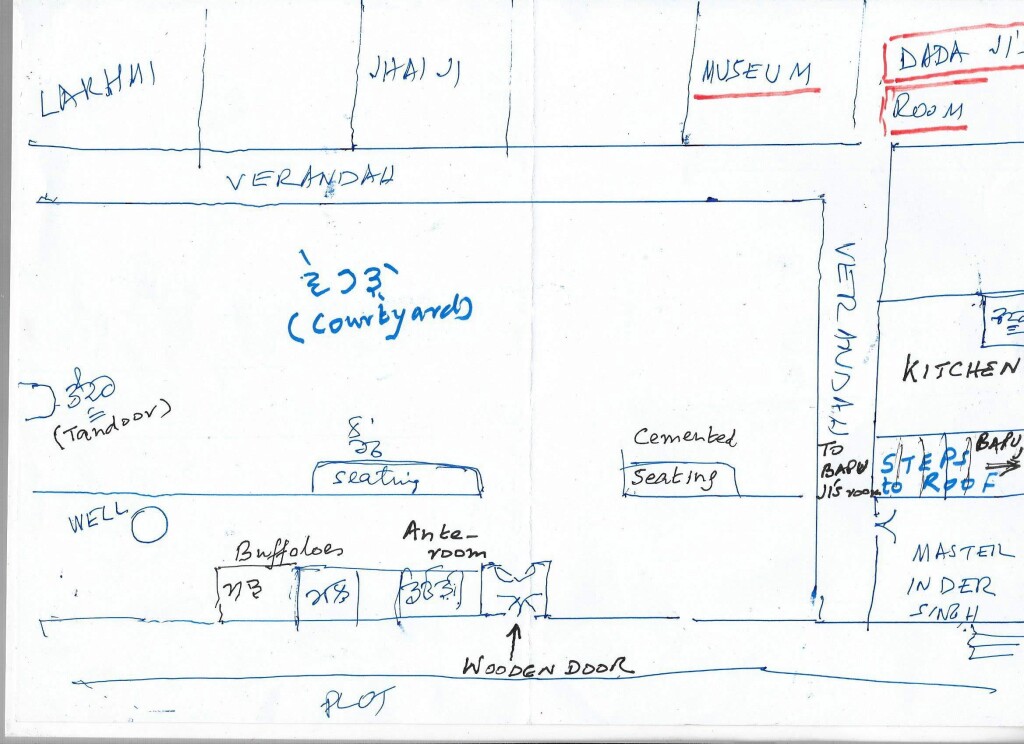
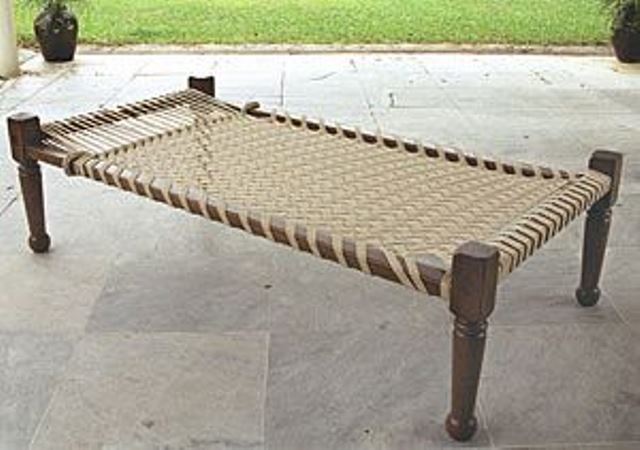
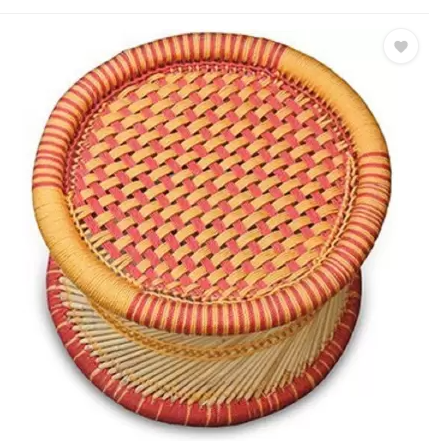
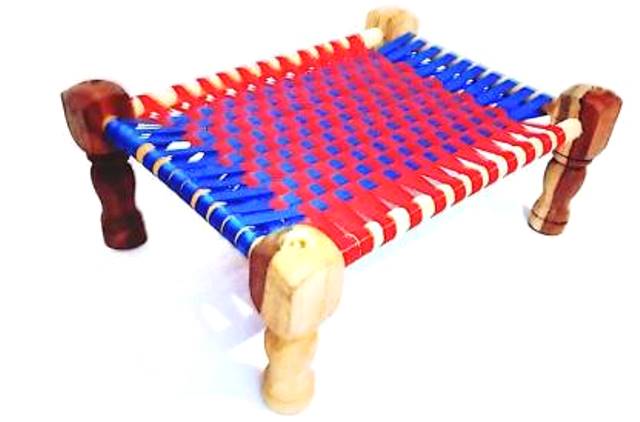

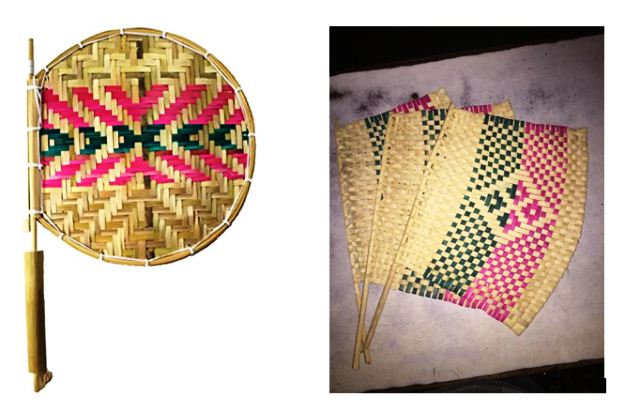
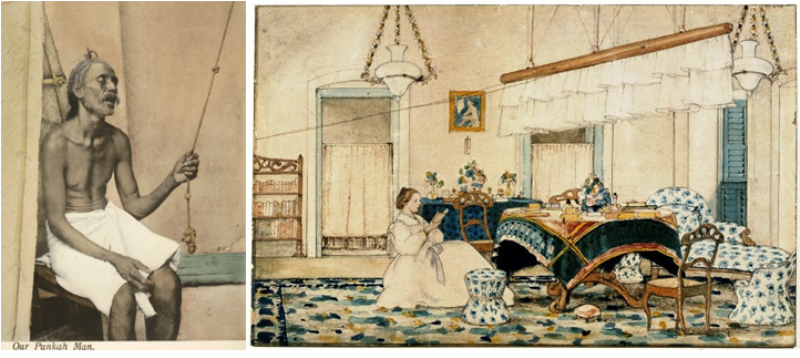








My Dadi is from Farooka and has faint memories of her childhood.
She mentioned she went to Sanatan Dharam School in Farooka which was only for girls.
They migrated in 1947 when she was only 7 years old.
I showed her videos you mentioned in the blog and she became so nostalgic, although she hardly remembers much of it but she definitely became very happy to see the videos.
Thank you for such a lovely blog, if possible would like her to talk to someone who’s from there and can just rekindle her memories of what it was and how Farooka is now.
Warm Regards
Rishabh
Studying at Farooka High School, Farooka, Sargodha, Punjab, Pakistan has always been an element of happiness. Whenever I visit the school, I feel like I am in the paradise on the Earth. The fragrance of trees aur flowers gives the best soothing feelings ever.
No doubt, I have millions of memories there and wish to visit such a blessing everyday. The clay, the trees, the rooms and each corner of the school are the best things happened to my experience of life on the Earth bestowed by Almighty Allah. And I can sense the Indian ancestors of the school that how they feel about the school as these feelings are real, why? Because I feel the same whenever I pass by my school.
My dear School should be awarded with a high profile award for giving ‘the best nostalgic feeling place’
Thank you…
i am tausif from farooka
Dear Tausif Akram, I am a grandson of Bhai Hira Singh ji. I would be glad to know more about you.
Surjit
Thanks sir
Hello sir. first of all i thankfull you read my comments and reply me.i am tausif akram from farooka ( Klayar Family ) my birth place farooka town. i read farooka high school 1997 to 2002 i complete metric . farooka high very big school in farooka town. and school buliding condition very good . All school teacher and govt of punjab maintain school sturcture every year and day by day. my father book shop near farooka high school . scince 1972 to 2020. now my father sahib no more.
hello Sir. 16-08-2022 BBC New punjabi Show farooka school History and your interview. i am very gald to see you interview. my kalyar family support bhai heera singh started 1908 for school farooka town. manay manay blessing Allah yar kalyar and bhai heera singh. Thanks regard
Tausif Akram farooka Punjab pakistany
Thanks, Tausif Akram for both your messages.
In the book written by our father, there is a lot written about your ancestor, Mian Allah Yar Kalyar. It is in Punjabi, so I will find a way of sending it to you.
Where is Jenab Fateh Mohammed Kalyar? I was in touch with him for a long time.
Also, can you give me the e-mail ID of the Head Master of the school?
With best wishes,
Surjit
OK
Sir JI
you alone live in my memory
and
now you will have to agree
I said you are our
MILITARY KHUSHWANT SINGH JI
Now don’t ever say
I’m a sooth sayer only
you alone
make create and procreate
HISTORY
One day you will also be
known as
”WAHE SURJIT SINGH JI”
THEN
will you ever remember me ??
COLLS WHO????
ALL THEORY
NO POETRY
BLUFFING THE WORLD IS HE
THOUSANDS READ HIM
BLAST it
THANKS MY ONLY LIVING BROTHER
FROM
CANADA
WITH ALL MY LOVE
Kuamar
On Wed, Sep 1, 2021 at 4:02 PM Satish Chandra Gupta wrote:
Dear Gen Surjit Ji,
It has become one of my most precious emails, sir! Had I known that it was yr place & if I had your Contact Earlier, I wd have certainly Visited yr place during my visits to Pakistan ( all without Visa )!
Regards,
S Gupta, Mumbai, tel 9820587609.
Satish ji,
Thanks for the kind words.
We can never go back. That much is certain. But we can talk about those days. They call it, ‘old world charm’
But one can only do that with people of our own vintage. If you try to tell these stories to younger persons, they think we are delving into history.
Be that as it may, do call me up when (and if) you have the urge to do so.
Surjit
Ph 9915797823
Rk Sehgal
Attachments
Sep 11, 2021, 7:51 PM (16 hours ago)
to Satish, me
Namaste Satish ji,
Many thanks for sharing this “Lucid Dream”. I opened this email just this evening–you are aware of my busy life with lots of emails and WhatsApp messages every day.
The maps and videos were a treat. Looking at the map I remembered my train journeys from Lahore via Kasur to a place called Kusamsar near Vihari. Incidentally I got my First Aid Certificate there at the age of 7. Shall attach a copy of the same.
It was a nostalgic journey for me as I could relate to almost every item–from going to the fields, Chauki, Moorha, Keekar ka datun, carrying charpoys to the roof, sleeping on the roof looking at the stars till sleep came and not to speak of the hand drawn ceiling fan later, etc etc.
Life was simple and peaceful. I do not recall any jhagdas among people.
Take care and stay safe.
Warm regards
R.K.Sehgal
Dear Sehgal Sahib
At the outset, your name invokes music in my ears. I am reminded of scores of numbers like, “Babul mora naihar chhooto jaye” and “Aye qatib-e-taqdir mujhe itna bata de…”
Your mail has made my day!
I wish I meet you one day!
Surjit
Rk Sehgal
Fri, Sep 17, 5:29 PM (3 days ago)
to me, Satish
Namaste Gen. Surjit Sigh ji,
Thank you for your lovely remarks. Yes, K L Saigal’s songs are classics. I do have some of his songs and also of others like Shamshad Begum, Noor Jehan etc which I later converted to digital and can hear them on my laptop even when I visit my sons abroad.
It will be a pleasure to meet you Sir.
Warm regards
R.K.Sehgal
Great nostalgic snapshot chacha
Anu
Dear Anu and Ripi,
Nuri’s daughter, Sahiba asked me, “Where were we, before Farooka came up?”
I sent the question to my friend who is from our part of Punjab. He sent me an interesting story. I plan to enlarge on the information given by him. It is possible that I may be able to trace out the roots of ‘Chawlas’ and ‘Sahdevas’ (They are both from the Arora caste)
Love. And do keep in touch. I say so because I have begun to feel that I have not much time left. The designed life of the human body is 75-77 for the male Indians
Stay safe.
Chacha
Hi, The story of Farooka is simply nostalgic. The rural life pattern of this whole REGION / belt, the dominant ethinic beings on both sides of River Indus will ever remain engraved on the sands of TIME.
Gen Surjit has painted the scenario beautifully, touching the simple innerself in me.
The nostalgic references to Farooka village and the beautifull photographs of the home production of Charpoys, Chaukis Morrha, Pakhis of those times leaves guy like me choked, for the same life style I too have experienced in my village in Gurdaspur. from say 1962- 1975
It highlights a fact that inspite of the gigantic strides MAN has made in science and tech, from materials, machines, space science etc, flying away to moon-mars still looks centuries away, humanity must come to terms with itself and preserve the planet earth and its environment keeping life simple.
Thanks
Sultan,
Thanks.
You have an artistic bent of mind, and therefore you can appreciate these pieces better than most ‘faujis’!
God bless. How is the bitia doing?
Surjit
Very well written. Liked it very much
Savneet
Thanks.
I am waiting for a piece on “Mud houses” from you. Please embellish to with pictures.
Chacha
Is it the version our family ancestrally spoke?
Sahiba
Sahiba,
Yes, indeed.
And in Farooka, they still use the same dialect.
That is why it brings nostalgia to us!
Surjit Chacha
Sahib,
Yes. This is called ‘Shahpuri Punjabi”
They still use it in Pakistan. We have changed over to the ‘Amritsari language’
Chacha
Really great and nostalgic.Thanks a ton.
Amarjit
Thanks. I am a regular reader of your blog. . It is really nostalgic and makes it a very interesting read. With warm regards and best wishes.
3016
3016,
I know that.
And I also know how much affection you have for me. I did nor see your comment, and therefore sent a special mail to you.
2997
Sirji,
I have read it with great interest. In many ways, it is reminiscent of my last days in my ancestral village and how we had to abandon it even as the hearth was burning for the cooking of the evening meal.
Though I was about six years old I have a vivid recall of it. It set on a trauma that hasn’t left me till date.
Parminder Dhanoa
Parminder Dhanoa,
I clearly remember that in our childhood, we did not refer to 15 Aug 47 as Independence Day. We always called it “Partition”
And rightly so!
Surjit
Thanks for sharing
Tilak
Read with interest the missive posted by Gen Surjit, especially so, since my ancestors also belonged to the same area. In fact, respected Maj Balwant Singh ji, and our early generations were close family friends.
The family friendship continued even after partition since both families were allotted lands in Yamuna Nagar.
All seven brothers of my respected father took their initial education in their Farukha School before shifting to Lahore for higher classes.
Do not know if it is the same family, but my family handed over the keys to all our Havelis in villages Dera and Jhara to Kalyars, as mentioned by Gen Surjit. My cousins are still in touch with the family.
Our lands were taken over by Pakistan goverment to distribute among migrant muslims.
Narinder,
My father and your uncle shared many things, including the name itself!
In YN, our houses were no more than 100 yards apart.
“Jaane kahaan, gaye voh din…”
Do keep in touch.
Surjit
Dear General,
Yes, that generation was great.
Two small anecdotes.
While studying at RIMC, I was called by your respected parents for lunch while he was posted in IMA.Your Daddy carried out a mock SSB interview and declared that I am selected. On my request to impart me some wisdom; his only words were “Think and remain Positive” during all phases of your SSB selection process and you do not need any more coaching. Not only did I stand 12th in the overall order of Merit but this became my motto for the rest of my life.
I was detailed to attend one of the SSB boards at Merrut. Respected Maj Balwant Singh ji was also posted probably on some other SSB board or some formation. My father wrote to me that I must pay my respects to Major Sahib. My reply was that I would certainly do so, but after the results of SSB are declared.
NK,
You have done us proud with your performance…And you have left an impressive mark on the sands of time!
God bless you!
Surjit
D.S Madan
10:08 AM (2 hours ago)
to me
Enjoyed going through. Good that you value your roots/past. Most people tend to forget and bask in the success they achieve.
Rgds,
3000
3000,
Thanks.
The tree is only as strong as its roots. How, then can we forget our toots?
2997
I read this beautiful piece of nostalgia again and again during the last few days before writing my comments. It is a great human faculty to go back in time to our childhood and adolescent years to relive our life and talk about all the ” good times ” we had in such a peaceful way – away from and insulated from all the clutter you face in these trying times. The tapestry presented by General Surjit is so rich and the comparison provided of the location now with videos make it eminently fascinating. The location ,artefacts and way of life in those days make one envious and at the same time happy to get a privilege to be part of that journey at least virtually.A great piece by any standards
Hari,
They say, ‘Old is gold’
We have gained a lot from technology…but we have also lost a lot.
For one thing, simplicity has gone!
Life has become far too competitive. We are all running, and chasing shadows!
And one day, we find that we have reached nowhere.
Regards to Malathi.
Surjit
Col Manmohan Singh Jassal
12:23 PM (1 hour ago)
to me
Sir
An excellent forward
Manmohan
My dear Surjitji
What a treat it is to receive your blog & as ever, it is written by you straight from the heart – so personal, so lucid, so family-oriented, with such simple pride that I feel moved. You are a gem amongst all my friends & thank you deeply.
Vinod
Bhai Sahib,
Once again, ‘Ik paa khoon vadh giya hai!’
Let us take a vow, we will speak to each other, at least once a fortnight.
We can not go back. That much is certain. But we can re-live those days by talking to each other.
God bless.
Surjit
Very very interesting and nostalgic. Thanks
Manjit
Manjit ji,
Indeed!
For you, it has a more profound meaning.
These days, I am researching the story of our ‘Roots’ with the help of a friend.
Surjit
SSA Uncle -
It is a beautiful piece. I do surf the amolak website occasionally – I feel nothing but proud of our heritage and I find the compiled compositions insightful.
Sangat
paramjit singh
Thu, Sep 2, 7:26 PM (17 hours ago)
to me
Respected Sir,
You have written that your father was posted in Mamyo before the partition and that he was given a home posting to Sargoda thereafter. My grand father and his entire family was was also stationed in Mamyo till the time of Japanese invasion. They too left everything and moved to settle down in Sialkot. They stayed there till the partition.
My mother is from Layallpur.
Warm regards
Paramjit
Dear Paramjit,
It is a small world!
Burma was a part of India for a long time, and many Punjabis went there in search of better opportunities
And now, it is all changed. For us, New York is nearer than Lahore! That is the dichotomy!
How is your mother now?
Regards to Seema/Gudia
Surjit Surinder
Dear Sir, You have taken us to an era when I was born. How we yearn for those times. It must be an exhilarating experience to visit your home town (Now Farooka is a flourishing town). In an enchanting manner you have described the village life. The maps of Afghanistan and Pakistan help us a lot to understand what are the developments taking place there. No better way of describing the village environment than your description, it’s so praiseworthy.
Thanks for the article, many many thanks,
Regards,
Sitendra Kumar
Thanks, Sitendra.
Your words are kind and soothing!
Surjit
Dear Surjit ji,
Can imagine your nostalgia associated with your ancestral house and village which has grown to a city. Wonderful going through such a lucid write-up.
Harindar
Harindar ji,
Thanks.
As we grow older, we tend to look back more often than towards the future.
Shaikh Farid ji said,
Vaikh Farida jo thiya, darhhi bhayi bhoor
Aage neda aaya, pichhe riha aye door!!!
Well. That is the way of the world.
Surjit
Thank you, Chacha
I Will watch it and call you
Nuri
[7:18 PM, 9/1/2021] Anita Chawla Tiwari: Indeed we are so proud of our ancestors!
Learning the history of our ancestors..inspires greater love and compassion which translates into our relationships with our families!
Anita Chawla Tiwari: thank you once again
Anita ji,
Of all my nieces, you are the most affectionate.
God bless you.
Your grandchild is a darling, and the ‘apple of your eyes’
Surjit Uncle
Thank You Chachaji!
It is very nicely written!
Thank You for sharing it
Love & regards!!
Dearest Uncle.
So good to hear from you. Will definitely see the tribute on the link and show it to Mummy also. I was in any case remembering you for many days and wanting to get in touch with you. Hope you and Aunty are both doing well. Love and regards.
Jyoti
Thanks.
My heart is full of the memories of your departed Papa.
May the Lord grant peace to his noble soul
Surjit
Virji,
Very nice tribute Next generation must read it and get connected to the family roots Keep up the family spirit highVeerji thanks for sharing
Satinder
[4:09 AM, 9/2/2021] Sahiba: Is Shahpuri Punjabi our original language
: I was just thinking of you yesterday, so great how you messaged on the same day
Sahiba
Sahiba,
And I think of you nearly every day!
You gave us so much affection!
Chacha
Dear Veerji,
Feel privileged & blessed…. receiving this post from you. Wish I’m able to imbibe from the teachings of the Saintly Noble Soul.
Rajinder
Excellent Surjit Uncle Showed The Entire Piece Written On The Website & The Videos To Papa & Mummy. They Were Very Happy To See It
Manish
Chacha,
This was a very important day in our lives 2 September when I used to stay with Agyapal chacha ji in Sect 27
[10:49 AM, 9/2/2021] Gulzar: Preparation used to be on for the last 15 days and it was like a small festival or as a small Diwali in our house where lots of people used to come from far and wide across the country and the globe and stay in sector 27 four or five days ahead of schedule and all arrangements were made especially the mike and proper linen and cutlery and very nice Langar and all guests were treated with respect
Missing all those days and all the good fun that we had with our extended family members and all the blessings that we got from everyone
Gulzar
Gulzar,
Chacha ji was the most ardent disciple of his saintly father.
And just imagine, he was less than four years old when Bhai Sahib passed away!
And do you know that for a few years, Chacha Pal was adopted by his maternal uncle, Mama Sukhdayal Singh. But Pitaj brought him back, to ensure that his education did not suffer.
Chacha
Very great service Sir ji. I love your great contribution to me , my family in learning about my own place I was born , just a few months after your dear brother Brig. Surinder Singh was born. Surinder Singh has been my best friend & class fellow since 1961 from Delhi IIT.
He only referred me to meet you in 2016, then our close relationship started with your great family of same location of our side of ancestors. Our Minocha families were there in Farooka & Silanwali since unknown generations.
I am overwelmed by going thru your new Blog.
Very nostalgic surely with tears in my eyes since long.
Today , since morning , I was recalling the murders of all my elders in Farooka in late August & 1st Sept, as I had heard from my mother & eldest brother & senior first cousin who survived brutal killings by Islam followers to take away our huge properties there, built by hard since honest work..
My father , his two elder brothers & his Jija ji were murdered .
We were rich cotton exporters from own factories in Silanwali , and huge fertile farm lands plus many Havelis in Farooka.
My elders knew your ancestors well.
We became refugees in our lands with history of many generations living in prosperity. Had no difficulties of Hindu Islam living together peacefully in harmony. Respected each other traditions & festivals
Satish,
I have gone through the heart-rending story of the cold-blooded murder of your revered father and his kinsfolk.
I think it should be sent to the ‘partition museum’ which has been created in Amritsar.
Regards,
Surjit
Very well written. I could easily relate to it. My grandfather was Lala Jivan Das Bajaj and was headmaster Govt school, Khushab. It is very much possible that your grandfather may have known him or heard of him. Our house in Khushab was in Madaana wali Gali and similar to yours but smaller. There was a cow tied in the courtyard enclosed by verandah and rooms. We were west of Jhelum river and my grandmother fetched water from there although there was a handpump in the Gali.
Thanks. I really enjoyed it.
Virin
Forwarded to my friends.
Gangadharan
Krishna Menon
Sep 1, 2021, 11:09 PM (13 hours ago)
Thank you Surjit. What precious memories! You have added a human touch to my imagination of this corner of Pakistan. Krishna
Subimal Dutt
Wed, Sep 1, 9:04 PM (15 hours ago)
to me
A poignant narrative of the bygone era-am touched as my beloved late father joined IMS during
WW2 and continued right up to his superannuation-thus we saw many postings in Punjab, youngest
schooled in PPS Nabha and I speak fluent Punjabi.
Thanks for sharing,
With Best wishes
Dutt
Dear Dutt,
Do tell us more about your days in PPS Nabha.
Where are you now?
Surjit
satish bhandari
Wed, Sep 1, 8:45 PM (15 hours ago)
to me
Thanks sir.
Real interesting.
Satish
Harbhajan Singh
Wed, Sep 1, 7:25 PM (17 hours ago)
to me
So Nostalgic Surjit Ji. You have the ability to describe things so well.
Warm regards and thanks for sharing.
Harbhajan
Virji,
Your emails are the prime source of my inspiration to write more. Or else, I might give up this activity!
Surjit
Amarjit Singh
Wed, Sep 1, 6:52 PM (17 hours ago)
to me
Dear General Sahib,
This is a really good piece — touching, moving, and enlightening.
Warm regards,
Dr. Amarjit Singh
Honolulu
+1-(808)-859-9165 (WhatsApp)
Prithpal Singh
Wed, Sep 1, 5:30 PM (18 hours ago)
to me
So well written. It took me back to my childhood and the stories of our father / mother, who were also from Dera jara, sargodha.
Respect to S Hira Singh ji and other elders.
Prithpal
Dear Prithpal,
Thanks.
I have heard a lot about Derajara, but am unable to locate it on the map. It was not far from Farooka.
These days, I am researching the origin of Arora Sikhs. It seems they migrated from a place called ‘Aror’ on the bank of the river Indus when it changed its course in 962 AD due to an earthquake.
God bless, and stay safe.
Surjit
randhir singh
Wed, Sep 1, 5:22 PM (19 hours ago)
to me
Really great and nostalgic especially the language
Gagi
Gagi,
Thanks.
I have just discovered that you belong to our caste, ‘the Aroras’
I am working on the history of our ‘roots’
God bless
Surjit
cs Institute of defence and management bhopal
Wed, Sep 1, 5:01 PM (19 hours ago)
to me
Thanks for making us part of your lovely nostalgia and a fine family’s history.
Madan Kandal
Madan,
Thanks for the kind words.
You are and have always been a part of our family. And you know that!
Surjit
Baldev Sood
Wed, Sep 1, 4:29 PM (19 hours ago)
to me
Thanks General Saa’b for beautiful nostalgic memories!
Baldev Sood
Satish Chandra Gupta
Sep 1, 2021, 4:02 PM (20 hours ago)
to RK, me
Dear Gen Surjit Ji,
It has become one of my most precious email ,sir ! had I known that it was yr place & if I had your Contact Earlier, I wd have certainly Visited yr place during my visits to pakistan ( all without Visa ).
Regards,
S Cgupta, Mumbai, tel 9820587609.
Gurdayal Singh
Wed, Sep 1, 3:42 PM (20 hours ago)
to me
Very Interesting and informative.
Thanks
Gurdayal
Bwana
Sep 1, 2021, 2:24 PM (21 hours ago)
to me
Surjit
Your nostalgic write up is touching.
As Joseph may have told you, I was born in Kenya. My father’s family was from Shahpur.
When I was at Lawrence School, Lovedale, we once took a trip, about 8 kids with two teachers. We went to Delhi, Srinagar, and through Pathankot, to Kulu and Kothi and climbed to the Rohtang Pass. That was the closest I got to Punjab.
When my Dad was a teenager in Kenya, his parents sent him to Shahpur where he learned Urdu. I’m not quite sure why, but it’s an interesting story. He retained a love of the language and would often write couplets and poetry in Urdu.
One of my friends, Lalit Sudan, with whom I play golf tells me his family was from the same area, perhaps Sargodha. I will forward your email to him and to three other friends, Ranbir (known as Palli or Paul) and Ascharj (known as Babu or Bob) Singh Jaggi, and Jaggi Singh, the last no relation to the first two. His name comes from Jagjit which is also a coincidence since you have referred to that lovely song most famously sung by Jagjit Singh – woh Kaagaz ki Kashti, woh baarish ka paani
It’s a small world.
Be well, stay safe and thanks for sharing.
Warm regards,
Anil (Bwana)
Anil,
Punjabi is a rustic language. It is not as refined as Bengali or Tamil. But those of us who are born in Punjab love it. There are some feelings which you can express in our mother tongue which you can not tell in any other language. And they defy translation!
Regards.
Surjit
Thank you Maj Gen for sharing. It did also bring many fond memories of my childhood visits to Mansa then a small town in Punjab years ago.
Pics of Charpoy, Chauki, Pankhis, Pankhas with the Pankha-man outside are vivid in my mind too. Just a small change from your description, we were not ultra-rich but middle class.
Very thoughtful of you and your Fauji brothers to have penned a tribute in memory of your grandfather who passed away 95 years ago (2 Sep).
I am sharing it with other faujis too who may have similar memories of past bygone childhood days. Our world of today has vastly changed.
जाने कहाँ गए वो दिन
चाहेंगे तुमको उम्र भर
तुमको ना भूल लाएँगे
Kind Regards,
Capt Balraj Bates, VSM, IN (Retd)
Sydney
Dear Balraj,
Thanks.
I can see nostalgia written in every alphabet of your words!
Summer is approaching Sydney. And that is a pleasant part of the year.
God bless
Surjit
Sir ji, you took me back 75 years, I was only 6 in 1947 but still have embedded memories of my birthplace BAFFA, Tehsil MANSEHRA, NWFP
When I close my eyes I still have a wonderful tour of my place.
I wish you the very best invoking such memories from time to time. I keep reading your forwards many times.
Regards,
gbs
Dear GBS
NWFP brings a flood of memories…I was born in Peshawar.
They now call it “Sooba-e-sarhad” And bullets are flying there like raindrops!
God be with them. The Pakhtoons are a class by themselves. Fighting is in their blood!
Surjit
greh bhushan
10:31 AM (1 hour ago)
to me
Respected Gen. Surjit Singh Sir,
While in service we do not get an opportunity to interact & remember the roots due to organizational obligations & frequent postings. Though I never had an opportunity to serve under your command but did have the good luck to meet you on & off.
I am extremely happy to receive your historical remembrances, which I try to connect with my past.
Thank you sir for keeping me in the loop.
Regards,
Col Dr.GB Sethi,
Contact – 9440859877
“All that is not given is Lost”
Kapil Aggarwal
Sat, Aug 28, 9:46 PM
Dear Sir,
Very nostalgic, beautifully expressed. The photographs brought alive the Charpoys, the Chaukis and the Pankhis of those times. Some of us of later generations have also experienced these and can instantly relate to it. I also remember gazing at “Sapta Rishi” at night lying on a Charpoy on the terrace, under the open sky and then locating the “Dhruv Tara”. Now a haze covers the night sky and the Great Bear is difficult to identify.
I am amazed at the climate charts. You have indeed put in the hard yards.
A labour of love and a fitting tribute to the memories of your revered grandfather and Farooka.
Warm regards,
Kapil
Kapil,
There was a ‘romance in the simplicity of those days when we had none of these modern-day gadgets!
Surjit
2997,
Joseph Thomas
Aug 31, 2021, 4:15 PM (2 days ago)
to me
Thanks. An excellent piece.
Maybe you can go back there in your next birth!
3007
3007,
To be reborn, I will have to die. Or is there another way?
2997
A vivid picture of life in Farooka 75 years ago. “I want to go back there” sums it up.